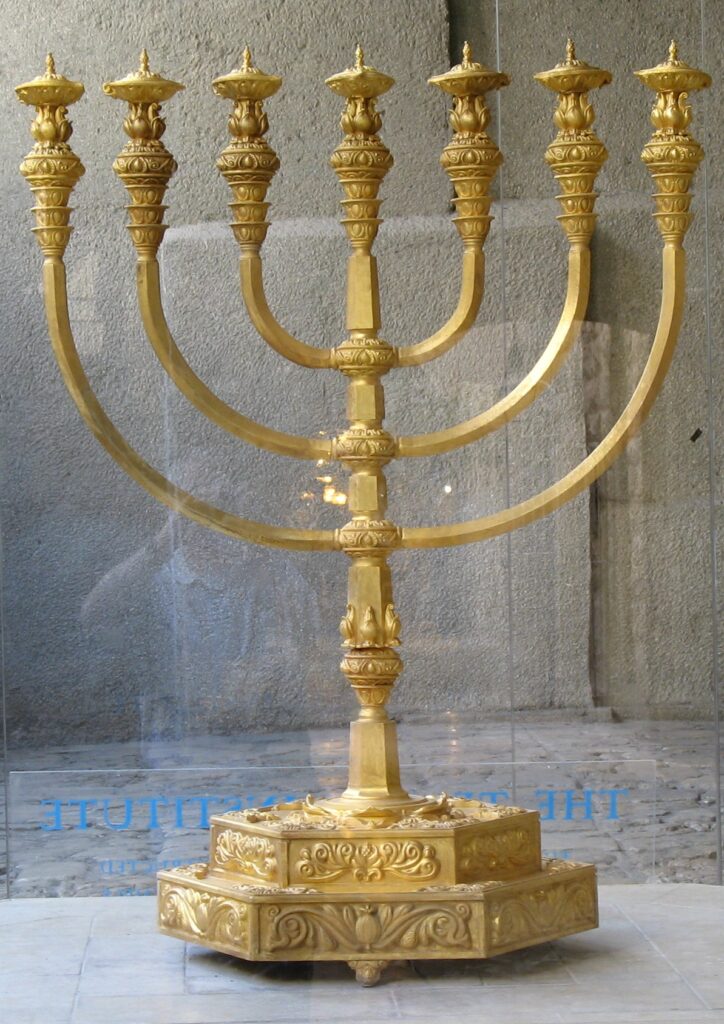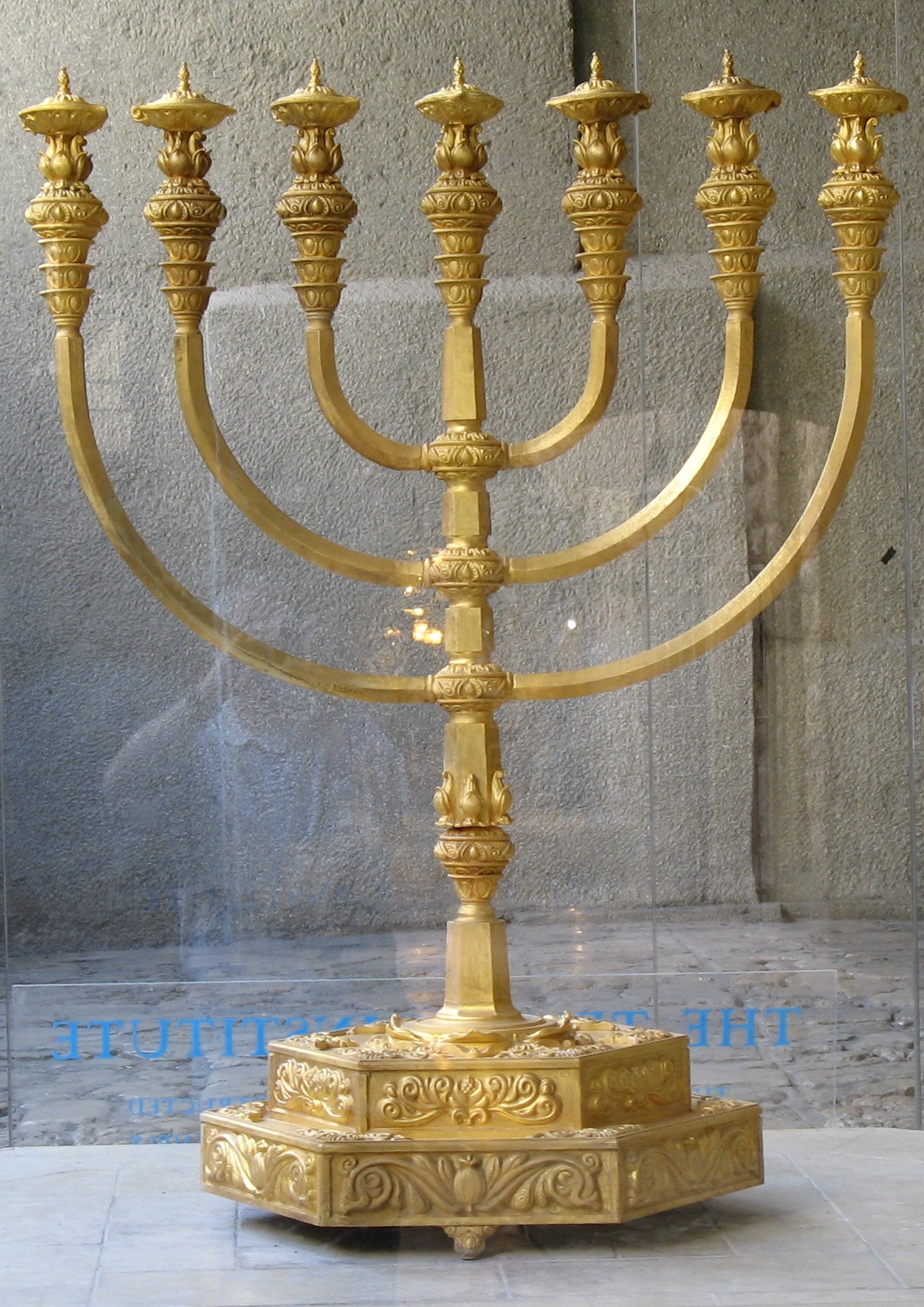There are many special numbers in the Bible, that is what this blog is about, but it is clear that the most special number is seven. The evidence is simple. Seven by far the most frequently referenced number. And seven, shown in the menorah, is also the number which stands as a symbol for Israel, ancient and modern.

The number seven appears around 752 times in the bible, the only numbers that come close are hundred and thousand, and these do not have the same significance as seven. seven appears around 250 times in the Pentateuch and 50 times in Revelation. It appears in almost every book of the OT and in all of the gospels. The only place where seven is not significant is in the NT letters.
In all of these occasions seven is a significant quantity or length of time. For example, in the story of the flood, Noah is commanded to take into the ark one pair of unclean animals, but seven pairs of clean animals. Periods of seven days permeate that story and many others. Seven is an appropriate number of repetitions of significant acts, for example Joshua (Ch 6) went around Jericho once a day for 6 days and on the seventh he went around seven times. Joshua is commanded to have seven priests blow seven trumpets as he goes. No other number bears all this significance.
So why seven?
The first thing that should be said about seven is that there is no obvious reason why seven should be a significant number. It does not correspond to any obvious human or natural property, in contrast to 2, 4, 10, 12. It might be linked to the phases of the moon, but the lunar cycle is 29 or 30 days. It is a prime number, indivisible.
The simple answer of why seven would appear to be that in the beginning of the book of Genesis. Seven is the number chosen by God for the day of rest and thus the number of days of the week. In a fascinating article about the week on wikkipedia, it is asserted that the Jewish people were the first to make a seven-day week the basis for their pattern of life. Their primary holy day is the sabbath, the seventh day. That is in contrast to societies, like the Babylonians, which used the month as the basis for their lives, adding holy days and rest days as they felt appropriate.
The significance of this seven day pattern might be lost on us, who are so used to it. But it would have made the Israelites stand in contrast to the cultures around them. Irrespective of the calendars of the other nations, including those dominating them or hauling them onto exile, they maintain a seven day pattern and a day of rest. And so the menorah, whose distinctive feature is the number of candles, is a symbol of Israelite identity. This seven day pattern is further enshrined as the fourth of the 10 commandments. It is immediately after the commandments about God and before any of the moral commandments.
There is nothing natural about this seven-ness, therefore it is supernatural if it is not to be random. Seven days give a divinely ordained pattern of life which supersedes any natural patterns from sun and moon. And thus I would suggest the number seven comes to be the number most associated with divine significance and divine action.
There are some combinations of seven which should be considered here as well. As well as a period of seven days there is a period of seven years which appears in the law, a year of rest for the land. This is followed by a period of seven times seven, 49 years after which a year of jubilee should be declared. Once in a generation, debts will be cancelled and slaves will be freed and land returned to its original owner. This same number appears as a number of days as well, Pentecost, the period after the Passover which was a harvest festival for the Israelites.
And more obscurely, the genealogy of Jesus in Matthew identifies three periods of fourteen generations, or six periods of seven generations, from Abraham to Jesus
